A Guardian investigation into the Alexandria, Louisiana, facility reveals a pattern of alleged due process violations, previously unreported accounts of neglect and abuse, documented health emergencies and long stays
He arrived in Alexandria exhausted and sick.
It was early April, and Amilcar Lisser-Posadas – shackled at his hands and feet – had been transferred from a nearby immigration detention center to this remote US immigration facility in Louisiana. He feared it would be his last stop before deportation.
He remembered the stench of the place. The packed jail rooms where hundreds of men were warehoused together with little access to showers, which sometimes spouted brown, rusty water – when they worked.
The 29-year-old, a father of two young daughters who are US citizens, had come to the US from Honduras and had previously been protected under the Obama-era program known as Daca (Deferred Action for Childhood Arrivals), which halted deportation for many undocumented people who arrived in the US as children. He had entered as a nine-year-old but his Daca protection had lapsed.
In March, Lisser-Posadas was apprehended by police in Shelby county, Tennessee, for driving with an expired license and was turned over to US Immigration and Customs Enforcement (Ice). He had no prior criminal record. For four weeks he was moved around various Ice detention centers. He filed a legal request to Ice for permission to remain in the country, citing fears of targeted violence in Honduras. He received no response.
The Alexandria Staging Facility – as it is formally called – was “just not a place for human beings”, he said in a phone interview.
The isolated, Ice staging facility in rural central Louisiana has emerged as a hub of the Trump administration’s deportation machine. The center, which has operated since 2014, is run by the private corrections giant Geo Group. It is considered a “black hole”, by many lawyers, advocates and former detainees interviewed by the Guardian. Living conditions are deplorable, many former detainees have alleged, and there is almost no legal access to the center.
A four-month Guardian US investigation into the Alexandria facility has revealed a pattern of alleged due process violations, previously unreported accounts of neglect and abuse, documented health emergencies and long stays, despite the center’s intended use as a short-term detention facility. It also found that the facility adopted a temporary and unexplained change to normal medical standards earlier this year that protect detainees’ welfare. Reporters relied on court documents, public records, internal Department of Homeland Security (DHS) statistics, 911 calls and interviews with 10 people either formerly detained or deported from the Alexandria facility, or those with loved ones held there.
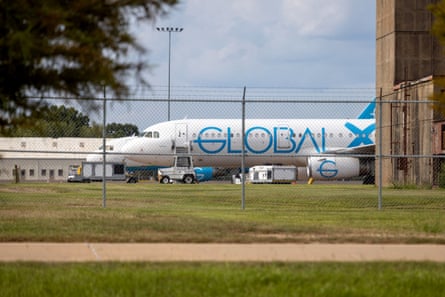
The investigation also reviewed leaked flight manifests from Ice’s largest airline contractor, Global Crossings (GlobalX). They underscore the critical role the Alexandria facility, which is within the grounds of a small regional airport, has played in Ice’s mission of rapidly transferring and deporting hundreds of thousands of immigrants. The data, which covers roughly 100 days from Donald Trump’s second inauguration, shows that more than 20,000 migrant detainees passed through the Alexandria airport on Ice charters operated by the carrier at a rate of almost 200 a day.
“Louisiana is where people go to be disappeared,” said Nora Ahmed, legal director of the ACLU of Louisiana. “My concern about the Alexandria facility is [that] it is a black box.”
Visitors are not permitted, and it is the kind of place where mistakes can happen, giving officials “a convenient excuse to wrongly deport people”, Ahmed added.
“The only way to stop that is for people to have access to attorneys.”
Note: 80 GlobalX flight routes from 19 January 2025 to 2 May 2025.
In response to the Guardian’s findings, the DHS assistant secretary, Tricia McLaughlin, did not address specific questions but said in a statement: “Any claim that there are inhumane conditions at Ice detention centers are false. Ice has higher detention standards than most US prisons that hold actual US citizens.”
She added: “All detainees are provided with proper meals, medical treatment, and have opportunities to communicate with lawyers and their family members.”
A spokesperson for Geo Group also did not respond to specific questions, but said in a statement that the company was “proud” of the role it had played for over 40 years “to support the law enforcement mission” of Ice.
The statement added that all the company’s “support services” were monitored by Ice and the DHS to ensure “strict compliance” with the agency’s detention standards. When issues are identified by Ice, a company spokesperson said they were “quickly” resolved.
The Alexandria staging facility is supposed to be a short-term center that holds detainees for a maximum of 72 hours. It has a 400-person capacity, and detains only men. It is divided into four large shared rooms holding about 80 people and a separate cell block.
But the center is routinely holding people for longer than the three-day maximum, a Guardian review of anonymized immigration enforcement data reveals. Of the more than 28,000 people who were detained in Alexandria from January 2025 until late July, 20% were held longer than 72 hours. Since October 2023, analysis shows that 742 people have been held there for 10 days or more.
While immigration detention standards are not uniform, centers detaining people for longer than 72 hours are generally required to provide more services – ranging from personal hygiene to recreation to legal visitation rights – than those designated as short-term.
“What this analysis tells us is that there is a requirement for the government to provide 24-hour attorney access at this facility forthwith,” said Ahmed of the ACLU of Louisiana. “It is clearly not a short-term facility any more, if it ever was one.”
Lisser-Posadas was one of those held for an extended period.
He was detained in Alexandria for about 12 days, according to a family member who remained in contact with him throughout, and a review of dated Ice detainee locator screenshots. He described routine lockdowns and a lack of food. He was unable to change his clothes or underwear. He arrived in Alexandria with chest congestion, a fever and an ear infection that worsened over time. He received no medication until the last two days of his stay, he said.
Medical care at the facility is provided by Ice’s health service corps, which is a part of the agency’s enforcement and removals operation.
Lisser-Posadas remembered asking Geo Group guards repeatedly for an update on the status of his legal request to remain in the country.
“I was trying to make sure that I got an explanation. Why I was being brought there? Why they wanted to deport me? Why they were holding me there for so many days?”
Instead, he said, one staff member, a detention lieutenant, looked at him through a secure window. “She would look at me straight, and then start laughing,” he recalled.
Eventually, after staging a small protest by refusing to return to his cell, Lisser-Posadas was moved back to another Louisiana facility in the nearby town of Jena for about four days. He was then brought back to Alexandria and quickly deported to Honduras on a series of GlobalX flights that left Louisiana at 6am on 23 April. His request for deferred removal citing fear of persecution was never resolved.
“My heart broke,” he said. “I saw kids [on the plane], some were still in their school uniform. They were being deported with their families. There were pregnant women as well.”
The leaked flight records confirm there were eight children under the age of 16 booked on the same plane.
Lisser-Posadas spoke to the Guardian from a federal prison where he was being held after he was apprehended at the southern border trying to re-enter the US in May to reunite with his family. He is now facing deportation again.
The Alexandria staging facility is operated under the performance-based national detention standards, an extensive set of guidelines designed to ensure a “safe and secure detention environment for staff and detainees”. The standards reflect that immigration detention is designed to be non-punitive as it relates to civil rather than criminal charges.
Alexandria has been found deficient in a number of these standards, according to a review of Ice inspection reports from 2022 onwards, including specific shortcomings over medical care and the use of force.
But because the standards are not legally binding, deficiencies rarely lead to meaningful consequences.
The facility was inspected by Ice in February this year – the first such examination in Trump’s second term.
A contract seen by the Guardian, agreed between Ice and the local district authority, shows the site was granted a special waiver four days before the DHS inspectors arrived, which absolved it of certain medical screening standards. The standard – which states that all detainees must receive a medical, dental and mental health intake screening as soon as possible, but no later than 12 hours after their arrival at a detention facility – was waived from 21 February to 22 May, according to the contract.
The document notes “there shall be no public disclosures regarding this agreement” without approval by Ice and offers no rationale for the decision.
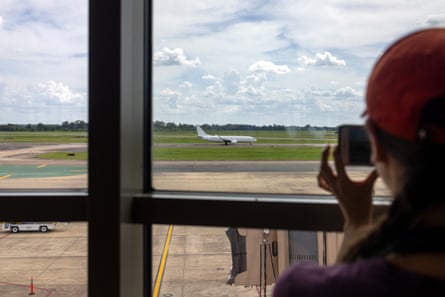
John Roth, the DHS inspector general between 2013 and 2017, described the revelation as “highly troubling for the population of detainees there”.
“The reason they wrote the performance-based standards is partly to avoid constitutional challenges on the conditions of confinement,” Roth said. “To the extent you are deviating from that in any way, you run into trouble.”
The DHS declined to provide a comment on Roth’s statement.
Alexandria passed the February inspection without any deficiencies. Inspectors with the DHS’s office of professional responsibility noted in their report that 13 detainees had been interviewed who all “reported satisfaction with facility services”.
Roth argued the facility should face an immediate independent audit, describing the most recent inspection as holding “no validity because there is no detail behind it”.
A review of 911 calls, released by local emergency authorities, reveals that the facility has seen a spike in emergency call-outs since 2023, under the Biden administration. This year, between January and the end of May, there was an average of more than two 911 calls per month, a rate that – if it persists – would put 2025 on track as the year with the most calls in recent history. On 19 March, a staff member frantically called 911 to report a detainee had attempted to hang themselves. “We need an ambulance, emergency ASAP,” says a panicked staffer at the facility. “What’s going on in there?” Another person can be heard shouting in the background. Five days earlier the center called to report a man with a history of stroke had passed out. Next month, the facility called requesting an ambulance for a detainee with low oxygen and high heart rate. In May, a call was made after an apparent episode of self-harm.
'A guy was in there hanging himself'
911 call
00:00:00
00:00:00
'A man passed out and he has a history of a stroke'
911 call
00:00:00
00:00:00
McLaughlan, the DHS assistant secretary, said: “It is a longstanding practice to provide comprehensive medical care from the moment an alien enters Ice custody. This is the best healthcare that many aliens have received in their entire lives.”
She added: “The Alexandria Staging Facility is in strict accordance with its National Detention Standards (NDS) to ensure the safety, security, and humane treatment of individuals in custody.”
The Alexandria facility began operations over a decade ago, costing about $20m to construct, at the end of a deportations peak during Barack Obama’s second term. Louisiana now detains more migrants per capita than any state in the US. The facility, one of nine privately operated centers, sits as the effective nucleus in the middle of “detention alley”, the network of remote immigration detention centres that stretch between Texas, Louisiana and Mississippi.
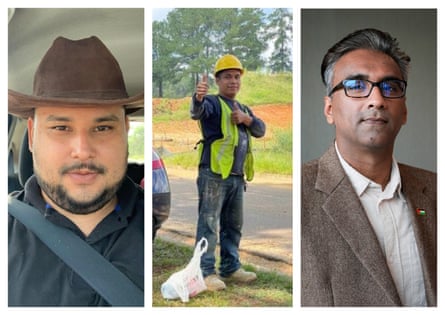
Geo Group, which manages the Alexandria facility, donated $1m to a Trump supporting political action committee during the 2024 election. Its CEO predicted the new administration’s mass deportation agenda could increase revenue by an additional $400m annually. It was reported in May that Trump’s hard-right border czar, Tom Homan, was a paid consultant for Geo Group before joining the administration. A White House spokesperson has said Homan abides by “the highest ethical standards”.
The former acting head of Ice, Todd Lyons, has said the administration wanted to turn Trump’s deportation machine into “[Amazon] prime, but with human beings”. It has already begun attempting to replicate Alexandria’s functionality in other states, with new detention centers in Florida and Texas constructed in close proximity to runways. But leaked GlobalX and detention data indicates the Alexandria facility remains Ice’s primary deportation hub. On 21 July 2025, the facility saw its highest detained population since 2023, with nearly 500 people held there – almost 100 people above its stated capacity.
A spokesperson for Geo Group did not dispute the Guardian’s findings on capacity numbers but said that the company’s facilities “are never overcrowded”.
The detention center is set within the grounds of a second world war-era airpark, once an air force base, and now a minor regional airport complex that sees a small handful of commercial flights each day. In July, the Guardian observed from a third-floor observation deck inside a red-bricked terminal building as a cluster of large Ice charter jets landed in quick succession and taxied towards the detention center out of public view.
Although the entrance to the center is situated on a restricted road, the site is partially surrounded by an 18-hole golf course. From the vantage point of the 13th hole, a reporter observed as dozens of shackled detainees, including a line of young women, were driven on to the tarmac in minibuses and escorted under guard to a queue of six planes. The asphalt shimmered in the searing heat and many bent their heads as they walked towards their flights. Golfers teed off just a few hundred feet away.
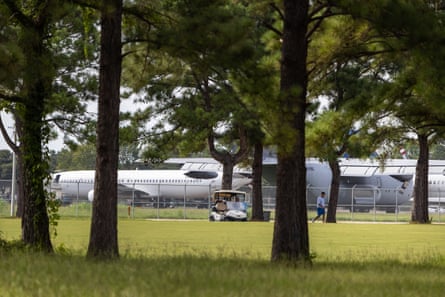
Of the 39 Ice flights that day, 23 July, over half either departed or landed in Alexandria, according to tracking data shared with the Guardian by the immigration advocate Tom Cartwright, highlighting its centrality to the mass deportation agenda.
Baldomero Orozco-Juarez, an immigrant community leader and father of one, remembered taking a similar walk across the tarmac when he was deported in the early hours of 14 May 2025.
He had been arrested by Ice less than 24 hours earlier and driven at extraordinary speed from Carthage, Mississippi, 250 miles to Alexandria – the sole passenger in the back of a government SUV.
He repeatedly asked staff in Alexandria to call his family or a lawyer, but was denied telephone access, he claimed. Emails reviewed by the Guardian confirm he was deported before his lawyer could find him. Although facing a removal order, Orozco-Juarez held a valid work permit and a pending legal application to remain in the US.
“They made us walk slowly,” he said in a phone interview from Guatemala. “They just laughed. Laughed at the way we walked. The way we got on the plane. They treated us so badly.”
His attorney, Jeremy Jong, described the deportation as “a targeted kidnapping”.
“And I would ask: is this the system that we want? Where someone can be deported in the middle of the night, without access to their lawyer.” Jong added. “Is that a system that treats everyone with dignity and respect?”
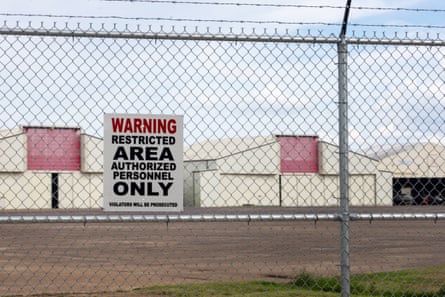
Badar Khan Suri remembered landing in Alexandria with little comprehension of where he was.
He was marched single file in shackles from a jet parked about 50 meters from the detention center and held in a waiting area lined with metal benches for over an hour. He claimed in an interview that a security guard forcefully spread his legs and punched him in the ankles as they eventually removed his restraints and took him to a cell block.
Leaked flight manifests confirm Suri was flown to the staging facility on 18 March 2025 on a packed GlobalX flight from Richmond, Virginia, in mid-afternoon.
Suri, an Indian postdoctoral fellow at Georgetown University in the US on a valid academic research visa, was one of a group of immigrant students targeted by the Trump administration for their criticism of Israel’s war in Gaza. He had been arrested in Virginia, detained, and then flown over a thousand miles to Louisiana without the ability to contact a lawyer or his family.
He was held in Alexandria for three days, inside a windowless cell under rolling lockdown, which intensified his claustrophobia and panic. He said he could not recall speaking to a government representative for his entire time in Alexandria and was given no official answers about why he had been detained or where he was being sent. He feared deportation at any moment.
He had not been fully processed into Ice detention, he said, and so was unable to use a phone within his cell block for longer than 20 seconds. He would ring his family back in Virginia at regular intervals and hear their panicked voices, but they were unable to hear him speak as his line was muted, he said.
“I was able to hear my wife’s voice, my children in the background. But they never responded to my call,” he said. “‘Who is there? Can you hear me?’ they would say. And if I wasn’t able to connect to them, I would think: ‘What has happened? Maybe someone has also taken them away too.’”
The staging facility has no space for confidential legal calls, no visitation capacity, or attorney client meeting room, according to multiple attorneys who have visited the center on Ice approved tours. Lawyers who have tried contacting clients held in Alexandria have said the only way to do so is to directly contact the Ice field office director for the entire region to facilitate a phone call.
Ice’s national detention standards on telephone access state detainees and legal counsel should “be able to communicate effectively with each other” and that privacy for legal phone calls “shall be ensured”.
Geo Group said it provides “in-person and virtual legal visitation”, but declined to comment on Alexandria specifically.
Suri’s immigration attorney Hassan Ahmad confirmed he was eventually able to contact him via the Ice field office director. The phone call was brief and the two spoke in Urdu as Ahmad “couldn’t be assured of confidentiality” and could hear an Ice officer present in the background.
Suri was transferred from Alexandria by van to a detention center in Alvarado, Texas, the next day. Eventually, on 14 May, he was released and continues to fight his immigration case back in Virginia. It was the same day that Orozco-Juarez was removed from the US.
“This [center] should not exist,” said Suri. “There should be detention centers with due process.
“At that time [in Alexandria], I realized there is nothing called rights. It was a real black hole. A real disgrace.”
He continued: “Who are the people detained there? Those people are married to American citizens. They have American children. They are an integral part of American society.”
Contact us about this story
Show
The best public interest journalism relies on first-hand accounts from people in the know.
If you have something to share on this subject, you can contact us confidentially using the following methods.
Secure Messaging in the Guardian app
The Guardian app has a tool to send tips about stories. Messages are end to end encrypted and concealed within the routine activity that every Guardian mobile app performs. This prevents an observer from knowing that you are communicating with us at all, let alone what is being said.
If you don't already have the Guardian app, download it (iOS/Android) and go to the menu. Select ‘Secure Messaging’.
SecureDrop, instant messengers, email, telephone and post
If you can safely use the Tor network without being observed or monitored, you can send messages and documents to the Guardian via our SecureDrop platform.
Finally, our guide at theguardian.com/tips lists several ways to contact us securely, and discusses the pros and cons of each.
Illustration: Guardian Design / Rich Cousins
Contributors
Illustration: Angelica Alzona
Graphics: Andrew Witherspoon
Visuals editing: Marcus Peabody
Photo editing: Gail Fletcher
Photography: Kathleen Flynn
Copy editor: Rusha Haljuci

 German (DE)
German (DE)  English (US)
English (US)  Spanish (ES)
Spanish (ES)  French (FR)
French (FR)  Hindi (IN)
Hindi (IN)  Italian (IT)
Italian (IT)  Russian (RU)
Russian (RU)  3 hours ago
3 hours ago
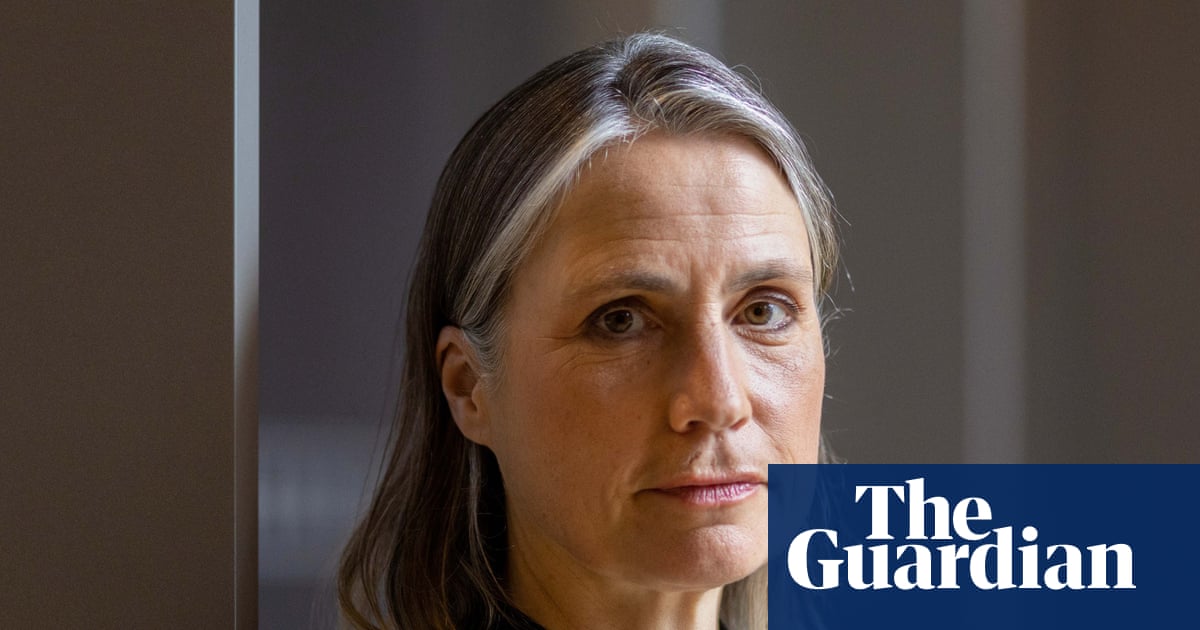


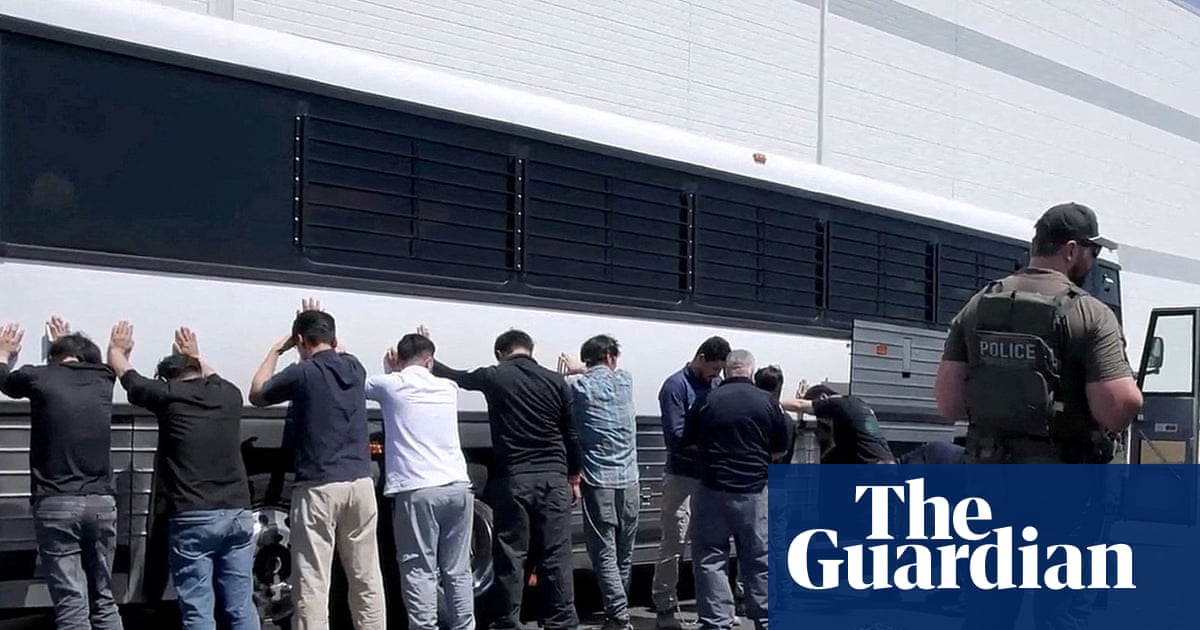









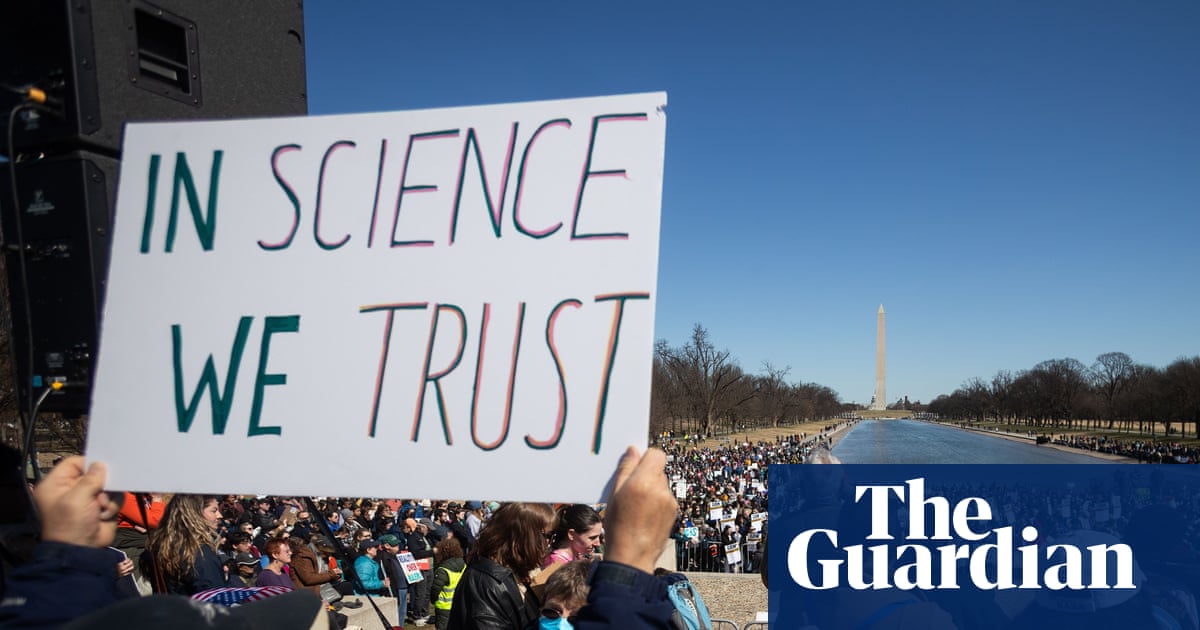









Comments